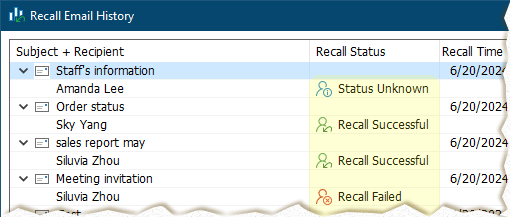How Do I Check Recall History

Hey gearheads! Knowing the recall history of your vehicle is absolutely crucial, whether you're a seasoned DIY mechanic, a modding enthusiast, or just a responsible car owner. Vehicle recalls are issued by manufacturers and the National Highway Traffic Safety Administration (NHTSA) when a safety-related defect is discovered that could pose a risk of injury or death. Ignoring recalls can lead to serious accidents and costly repairs down the road. This article will guide you through the process of checking your vehicle's recall history, understand what that information means, and what to do next.
Purpose: Protecting Yourself and Your Investment
The primary purpose of checking your vehicle's recall history is, first and foremost, for your safety and the safety of others on the road.
Beyond safety, understanding recall history helps protect your investment. Knowing about past recalls can inform your decisions about maintenance, repairs, and even modifications. For instance, if a recall was issued for a faulty fuel pump, you might want to consider replacing it preventatively, especially if you're planning on modifying the engine for more power.
Key Specs and Main Parts Involved in Recall Checks
The most important piece of information you'll need is your Vehicle Identification Number (VIN). The VIN is a unique 17-character code assigned to your vehicle at the time of manufacture. It's like your car's DNA.
- VIN (Vehicle Identification Number): This 17-digit code is found on your dashboard (visible through the windshield on the driver's side) and on your vehicle's registration and insurance documents.
- NHTSA Website: The National Highway Traffic Safety Administration's website (NHTSA.gov) is the official source for recall information in the United States.
- Manufacturer's Website: Most manufacturers also have recall lookup tools on their websites, which may provide more detailed information or specific instructions.
- Dealership: Your local dealership can also check your vehicle's recall history and perform recall repairs free of charge.
- Other VIN Decoding Tools: There are many third-party VIN decoding tools available online that can provide information about your vehicle's build specifications, including its original equipment and potential recall history. However, always cross-reference information with official NHTSA or manufacturer sources.
How It Works: Unveiling the Recall History
The process of checking your recall history is straightforward:
- Locate Your VIN: Find your VIN on your dashboard or vehicle documents.
- Visit NHTSA Website or Manufacturer's Website: Go to NHTSA.gov/recalls or the manufacturer's website (e.g., Toyota.com/recall, Ford.com/recall, etc.).
- Enter Your VIN: Enter your VIN into the recall lookup tool.
- Review the Results: The tool will display any open recalls associated with your vehicle. An open recall means the issue has not yet been resolved.
- Understand the Recall Details: For each open recall, the tool will provide a description of the defect, the potential consequences, and the remedy (what the manufacturer will do to fix the problem).
Real-World Use: Troubleshooting and Action Steps
Here's how you can apply this information in real-world scenarios:
- Identifying Potential Problems: If your vehicle is exhibiting symptoms that match the description of a recall, it's crucial to have it inspected by a qualified mechanic or dealership. Even if the recall is marked as "closed" (meaning the repair was supposedly performed), it's worth confirming that the repair was done correctly.
- Maintenance Planning: Knowing the recall history can influence your maintenance schedule. For example, if a recall addressed a potential issue with the cooling system, you might want to pay extra attention to your coolant levels and hoses.
- Pre-Purchase Inspection: Before buying a used car, always check its recall history. This can reveal potential problems that the seller may not be aware of or disclosing.
- Modification Considerations: If you're planning to modify your vehicle, be aware of any recalls that might affect the modified components or systems. For example, if there's a recall related to the braking system, modifying the engine for increased power could exacerbate the risk.
Basic Troubleshooting Tips:
- VIN Not Found: If the recall lookup tool says your VIN is not found, double-check that you've entered it correctly. Also, verify that your vehicle is actually subject to a recall. Sometimes, certain model years or trim levels are excluded.
- Recall Already Closed: If a recall is listed as "closed," it means the repair was supposedly performed. However, it's always a good idea to keep records of the repair and to monitor your vehicle for any signs of the issue recurring. If you have doubts, contact the dealership that performed the repair.
- Recall Information Unclear: If you don't understand the details of a recall, contact NHTSA or the manufacturer for clarification. They can provide additional information and answer any questions you have.
Safety: Recalls Are Serious Business
Ignoring recalls can have serious consequences. Some recalls involve defects that can lead to sudden loss of control, fires, or other hazardous situations. Never delay addressing a safety recall.
While some recalls are relatively minor, others involve critical components that can directly impact safety. Components like airbags, brakes, steering systems, and fuel systems are often subject to recalls. If a recall involves any of these systems, it's imperative to have the repair performed immediately.
Furthermore, remember that recall repairs are free of charge to the vehicle owner. The manufacturer is responsible for covering the cost of the repair, regardless of whether you purchased the vehicle new or used.
Conclusion
Checking your vehicle's recall history is a simple but crucial step in ensuring your safety and protecting your investment. By using the resources available from NHTSA and the manufacturer, you can stay informed about potential defects and take appropriate action to address them. Remember, your safety on the road depends on it.
We have a sample recall history diagram file available for download. This example will help you visualize what the recall information looks like and understand the key elements to look for when you check your own vehicle's history.
